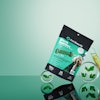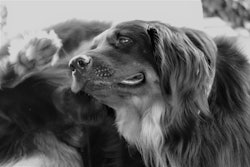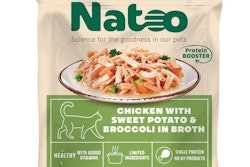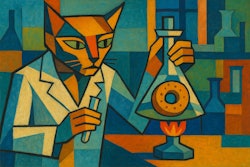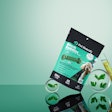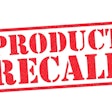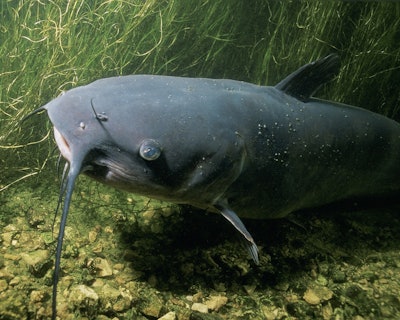
A bipartisan group of lawmakers has introduced legislation that would create federal funding opportunities for pet food and animal feed manufacturers to incorporate invasive blue catfish from the Chesapeake Bay into their products.
The Mitigation Action and Watermen Support (MAWS) Act, introduced by Representatives Sarah Elfreth (D-MD-03), Rob Wittman (R-VA-01), Jen Kiggans (R-VA-02), and Steny Hoyer (D-MD-05), would establish a two-year pilot program within the NOAA Chesapeake Bay Office to facilitate market development for blue catfish in the pet and animal food industry.
"Invasive blue catfish pose a direct ecological and economic threat to our Bay, which is why I am introducing the bipartisan MAWS Act alongside Congressman Wittman to address the damage inflicted by blue catfish, while also strengthening our local seafood economy and providing a new source of protein to pets nationwide," said Congresswoman Elfreth.
Invasive species removal
The Chesapeake Bay, located in the Mid-Atlantic region, is the largest estuary in the U.S., with more coastline across the watershed than the entire coast of California. The invasive blue catfish population has expanded throughout the bay's major river systems, threatening native species and the regional economy that depends on marine resources.
Under the program, NOAA would administer grants to pet and animal food manufacturers to establish transportation, processing and manufacturing infrastructure for blue catfish while incentivizing watermen to harvest the invasive species. The goal is to remove millions of pounds of blue catfish from Chesapeake Bay waterways.
Blue catfish, which have no natural predators in the Chesapeake Bay Watershed, can live up to 20 years and weigh up to 100 pounds. The invasive species feeds on blue crabs, rockfish, striped bass and oysters, causing ecological damage and economic harm to the seafood industry.
Industry support for legislation
The legislation has garnered support from multiple industry organizations. The Pet Food Institute (PFI), whose members produce the majority of dog and cat food in the U.S., has endorsed the bill.
"The Pet Food Institute is proud to endorse the MAWS Act, which establishes a pilot program enabling pet food makers to use Chesapeake Bay blue catfish as a high-quality ingredient in complete and balanced cat and dog food," said Dana Brooks, president and CEO. “PFI applauds Reps. Sarah Elfreth and Rob Wittman for introducing legislation that opens the door to a potential new pet food ingredient market while also offering local economic impact and environmental benefit.”
The American Feed Industry Association (AFIA) also supports the legislation. "AFIA is pleased to endorse the 'Mitigation Action and Watermen Support Act of 2025' to encourage the commercial use of blue catfish harvested from the Chesapeake Bay, including use as a wholesome and nutritious ingredient in pet food," said Leah Wilkinson, chief policy officer.
Aaron Merrell, CEO of CITIZEN'S Pet Products (Plato Pet Treats and Furry Republic), said the legislation creates opportunities for pet food companies to address environmental challenges while meeting consumer demand.
"This is exactly the kind of policy that makes a lasting difference," Merrell said. "The MAWS Act creates a clear path to address a significant environmental problem while giving pet parents the chance to make a meaningful choice — one that's good for pets, good for people, and good for the planet."
MAWS pilot program
Throughout the pilot program, NOAA will collect data on the ecological and economic impacts on blue catfish populations and other species in the Chesapeake Bay, the economic effects on watermen, and market response from pet and animal food manufacturers. The agency will report findings to Congress along with recommendations for expanding the program to other species and watersheds.
The National Aquarium, which currently serves blue catfish in its café, is exploring incorporating the fish into diets for animals in its care. "We also believe there is strong potential for blue catfish to contribute to healthy pet and animal diets and are investigating the possibility of incorporating it into the diet of animals in our care," said John Racanelli, the aquarium's president and CEO.


